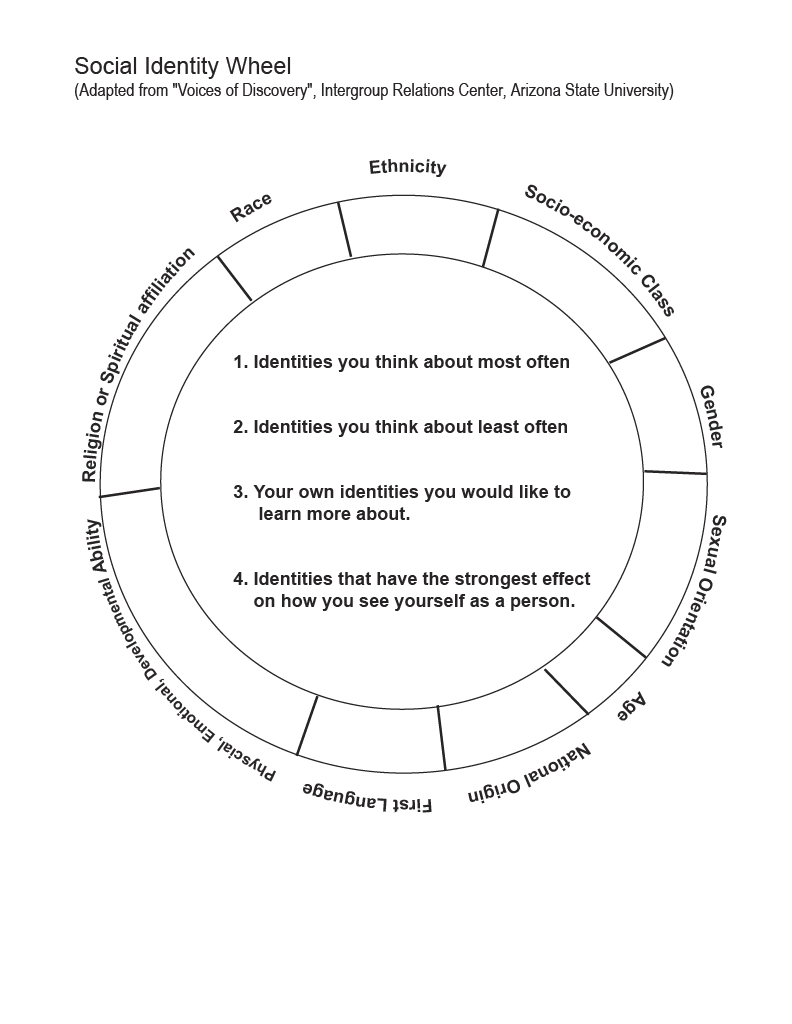Engaging with Diverse Communities
Here we learn from Lowine Hill, University of Waterloo and Madu Galappaththi, University of Waterloo on respectful engagement.
Explore the Social Identity Wheel
Engaging with positionality and identity requires engaging with your own identity and positionality. To help understand who is involved in community engagement, it is useful to consider the following questions:
- Identities you think about most often;
- Identities you think least about;
- Your own identities you would like to learn more about; and
- Identities that have the strongest effect on how you see yourself as a person.

Download a copy of the Social Identity Wheel

